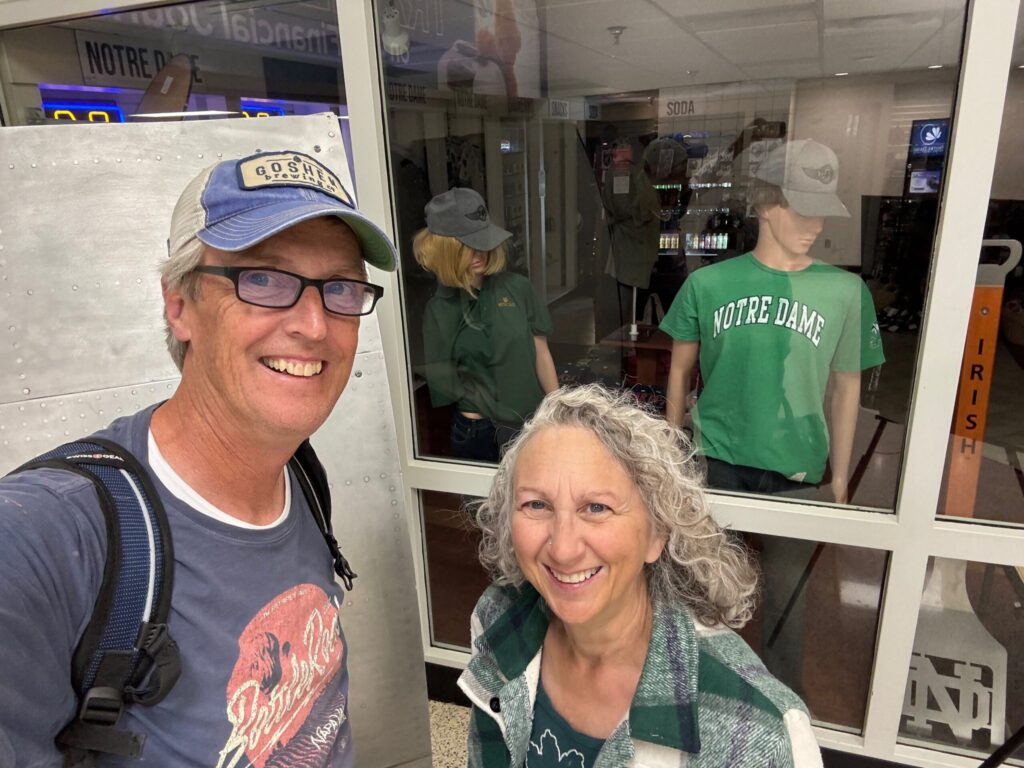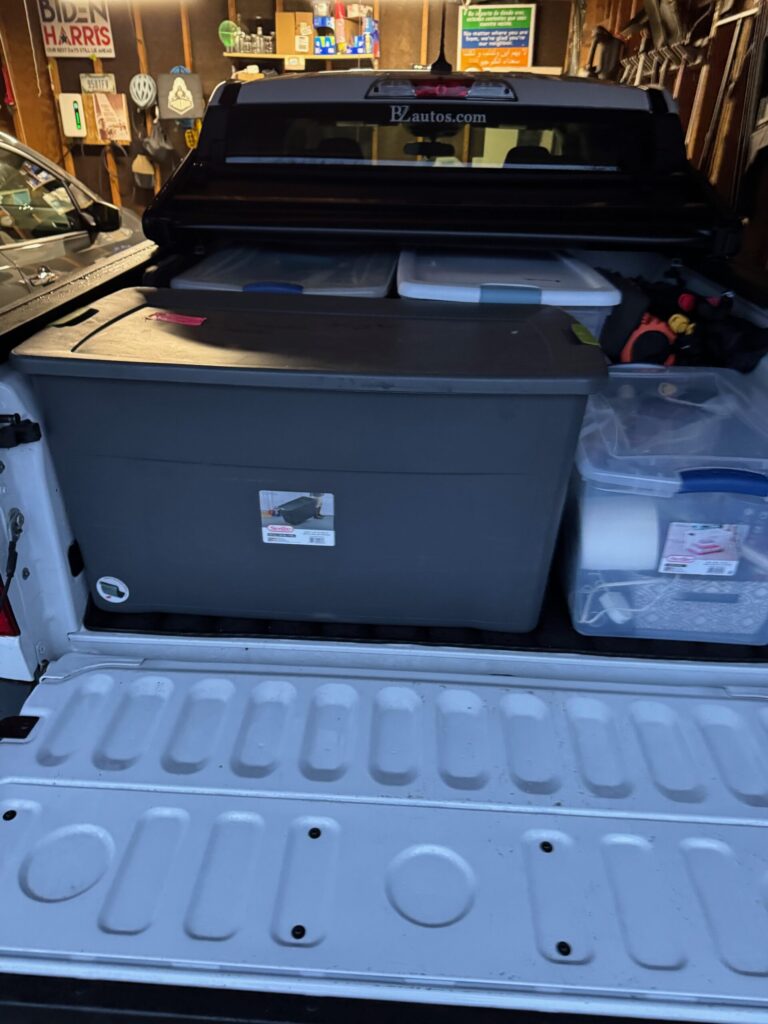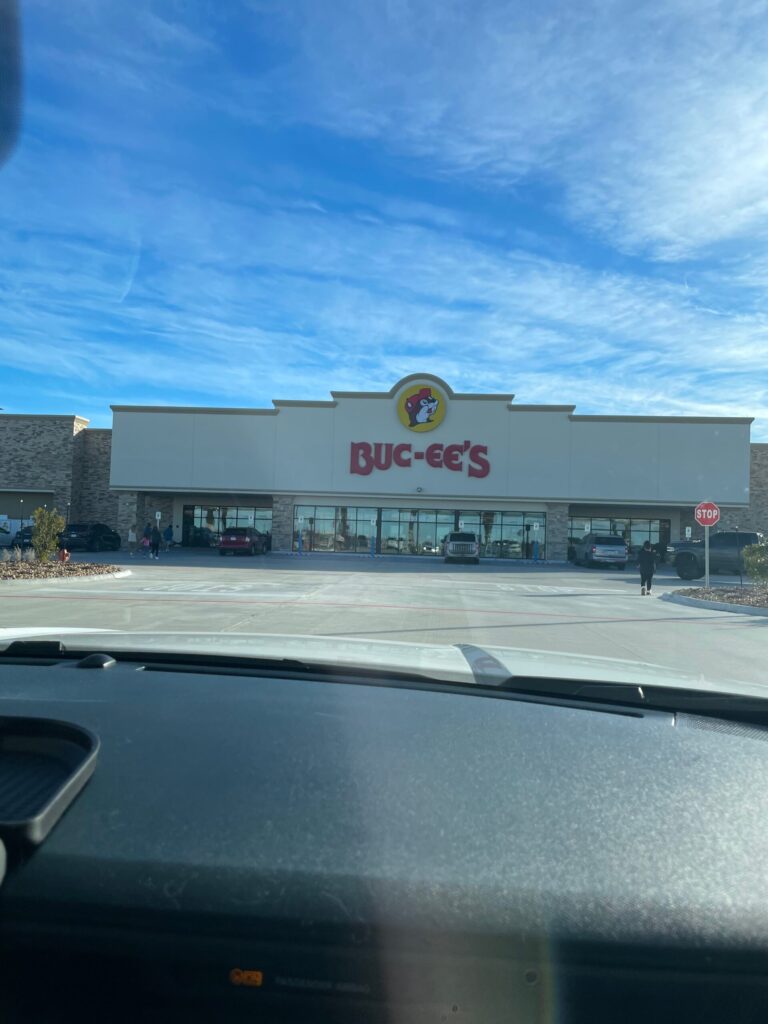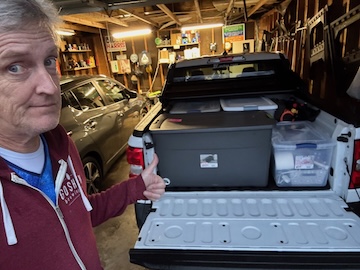We’re back in Indiana for a week, stepping into the familiar space of The Estate, our 800-square-foot home, after weeks of living in Casa Saguaro, our 233-square-foot desert retreat.

The first thing I noticed? Too much space.
Walking through the house felt excessive—60 feet from the kitchen to the bedroom instead of the 10 steps I’d grown used to. And the clothes? An entire spare room full, making me wonder: How did I ever think I needed all of this?
Defining Enough: The No-Trailer Rule
Not more than 13 weeks ago, we made a decision: only what fit in the bed of the Ford Maverick would come with us to Arizona. No trailer, no extra storage, no “just in case” packing.
At first, Lori and I wavered. Could we really fit everything essential into such a small space? The idea seemed abstract until we started measuring—taping out dimensions inside the house, stacking empty boxes in the garage, trying to see what “enough” actually looked like.
And then, it clicked.
We sorted by function: one box for clothes, one for kitchen essentials, one for work supplies. When I first started packing, I tossed in too much—things I thought I’d need, things I thought might be useful. But as I tried to fit everything into the defined space, I started removing, refining. Did I really need all these extra things? Would I actually use them? Bit by bit, I cut down until everything fit with room to spare.
I have to admit, though, the decision not to bring a trailer was met with some resistance—not just from Lori but from well-meaning friends and family who questioned whether we’d have everything we needed. And honestly, I questioned myself at times, too. There’s something about space that invites us to fill it. But what if we resist that instinct? What if having less actually makes us more adaptable, more focused, and more in tune with what truly matters?
The Packing Puzzle: Finding Clarity Through Constraints
Even after measuring, we struggled to visualize how much would fit in the Maverick’s bed. So, we took it a step further—bringing empty boxes into the house and assigning them by category. Clothes. Kitchen essentials. Work materials. Bathroom items. We treated the truck bed like a puzzle, stacking and shifting boxes until we found an arrangement that worked.

That process—physically mapping out space—transformed our thinking. Suddenly, we weren’t making decisions based on abstract limits. We could see the boundaries, and that made the choices easier.
In some ways, this mirrors decision-making in work and life. When we don’t define our limits, everything feels like a necessity. But when we establish clear boundaries—whether in projects, time, or commitments—we start seeing what’s actually important.
Enough in Work and Life
This experience reminded me of how we approach our jobs, commitments, and daily routines. Just like packing for a small space, being intentional about our work—choosing what truly matters and cutting the rest—can be freeing.
Too often, we overfill our schedules the way we overfill our suitcases, out of fear—fear of not doing enough, not being enough, of missing out on something important. But real clarity comes from distilling our focus, not spreading ourselves too thin.
I’ve seen this happen in education, too. Teachers (myself included) often believe that more is better: more assignments, more policies, more strategies. But too much clutter suffocates clarity. Just like in our truck bed, every commitment should have a function. If it doesn’t serve a purpose, it doesn’t belong.
And yet, making those choices isn’t always easy. There’s a strange comfort in keeping “just in case” projects on our desks or holding onto obligations that no longer serve us. But at what cost? How often do we trade focus and energy for a sense of false security?
A Lesson from an Overstuffed Cab

One thing we didn’t think through? Our overnight stop in Oklahoma City. We had packed our truck bed with precision, but when it came to what we needed for one night, we scrambled. Too many things ended up jammed into the cab, and when we tried to rearrange in the hotel parking lot, I hit my limit.
Let’s just say, Lori patiently talking me through repacking was not what I wanted in that moment. But it was a reminder that even with careful planning, there’s always room for adjustments.
We’ll do better on the return trip.
Enough is Freedom
Once we embraced the limits of our truck bed, packing became easier. The constraints didn’t feel restrictive—they felt freeing. The same applies to work, time, and even life.
What if we thought of our careers and commitments in the same way? What’s truly necessary? What’s just taking up space?
As I settle back into Indiana for the week, I find myself applying this question beyond just my belongings. What does it mean to pack light in how I approach my work, my relationships, my priorities? How much do I carry just because I always have?
Perhaps the lesson is this: clarity comes from defining what’s enough—no more, no less.
And when we know what’s enough, we move forward with intention.

